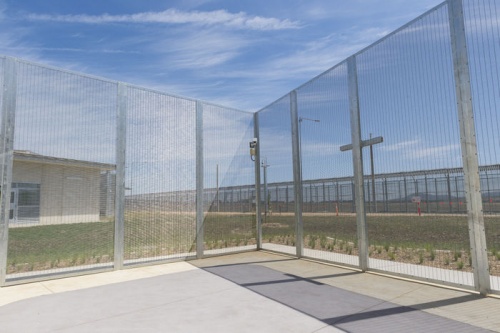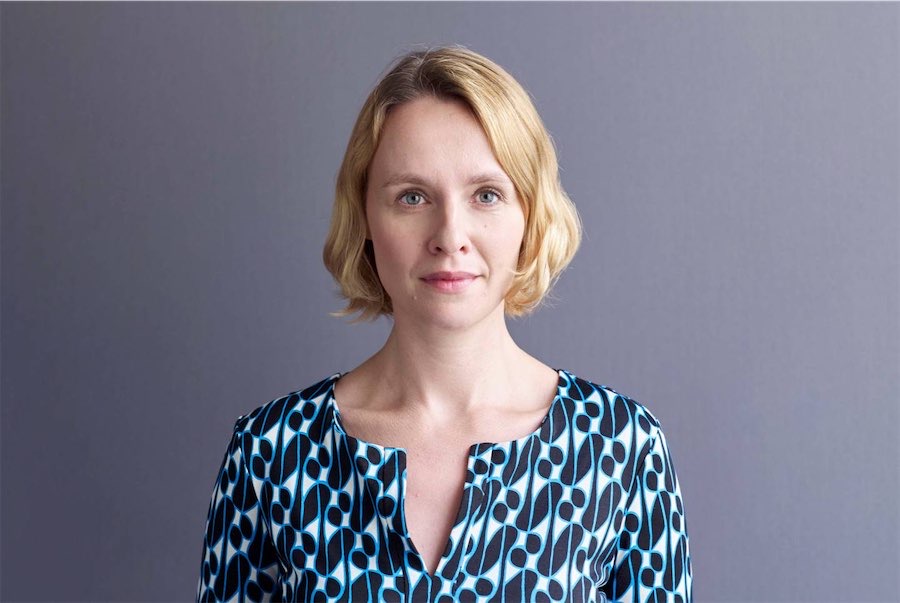
On any day people in this country are able to access an enormous range of fresh and packaged foods from the thousands of supermarkets.

These companies source fresh fruit and vegetables from producers across our country and then rapidly transport these foods to shelves via a sophisticated logistics chain.
Similarly with meat and fish which can have a more complicated delivery path from paddock or sea to shelf. An enormous range of packed, frozen and tinned foods are always available.
The storage and logistics tools employed surely are a modern phenomenon and support and co-ordinate a large workforce meeting consumer demand on a daily basis.
This system enables shelves to be kept stocked and monitors consumer choices to update inventory to meet the changing needs and preferences of consumers in a competitive market.
This has only been achieved through our free-market economy where individual choice and reward have produced prosperity and success. Centralised governments in all instances have been an abject failure in providing economic growth and efficient service and delivery systems.
I doubt any government could equal this performance for even one product, let alone the tens of thousands we are able to select from each day.
Cries of profit gouging are wrong with the net profit margin of Coles and Woolworths being 2.6 per cent and 2.4 per cent respectively.
Similarly, the claims of a duopoly are misplaced with Coles having 28 per cent of the market and Woolworths 37 per cent.
Malcolm Sherren, Stirling
Excessive profits and a lack of competition
The move to have the ACCC investigate price gouging was welcome, the recent Fels report highlights that excessive profits, coupled with a lack of competition, is responsible for aggravating the on-going cost-of-living crisis .
I believe the government should mandate that all items be priced on a “per kilo basis” to make price comparisons easier for shoppers.
Shoppers should shop around for genuine ” specials”, refuse to purchase ridiculously overpriced items and be wary of so-called “fresh foods” as in all probability they have been kept in cold storage for considerable periods of time.
Although some “rejected” perfectly usable food items have found their way to charity organisations, far too many end up in disposal bins, which is a disgraceful state of affairs when many people are struggling to make ends meet.
Mario Stivala, Belconnen
Reduce bus and tram fares and make a profit!
A recent correspondent said that the bus and tram fares are subsidised at the rate of $10 per fare.
There is a simple way to reduce this subsidy to zero and even allow ACTION to make a profit.
How? Between 10am and 4pm, halve the fares or less.
Why? The aim of the exercise is to fill every seat at all times. If all the seats are filled and the fare is above marginal cost (this is an economist talking) the bus/trams will make a profit.
This is what airlines do. They attempt to fill all seats all the time. An unfilled seat is loss making. So they drop the price in a form of internet auction so that all seats are filled at all times.
While an auction system would not work for buses, it would be easy enough to drop fares outside peak hours so as to attract customers and fill these loss-making seats.
ACTION makes a profit at peak hours. It’s all these empty buses roaming around at off-peak hours that lose money, Reduce fares at off-peak to fill these seats – and make a profit!
Tim Walshaw, Watson
Read the auditor’s report, Caroline
The Australian Railways Association chief executive Caroline Wilkie claims that Light Rail Stage 2B will deliver wider economic, social and environmental benefits.
She obviously has not read what the ACT auditor-general said about these claims.
The sort of “urban renewal” referred to could occur just as easily with bus rapid transit or trackless trams.
The auditor-general drew attention to the wider economic benefits being unsubstantiated and unduly large. They may benefit developers who build apartment blocks along the route, but that does not help Canberrans to pay for the cost of the tram.
And far from Wilkie’s “Renaissance of Light Rail”, other jurisdictions such as NSW are getting cold feet about this expensive form of public transport.
Ryan Hemsley is reported to have alleged that the report 21st Century Public Transport Solutions for Canberra is a “mish-mash of mistruths and half-baked proposals”. This sort of unconstructive comment shows that the Public Transport Association is unable to offer any substantial input on Stage 2B.
John Bell, via email
E-cigarettes: well done, Minister Butler
Congratulations to federal Health Minister Mark Butler for his initiative in tightening the laws on electronic cigarettes.
It is correct and commendable that the federal government is taking this action. He has shown courage not necessarily displayed by some of his predecessors in standing up against Big Tobacco.
For years, the industry has boasted how they can water down any proposed legislation against the marketing of its products. Not so with this government.
Well done, Mark Butler. Hopefully the opposition will give full support in the interests of all Australians, especially children.
Dr Alan Shroot, President, Canberra ASH
Premier’s got his ‘mankini’ in a twist
I’m not surprised to see Queensland Premier Steven Miles getting his “mankini” in a twist because Brisbane didn’t win the relocation of the AIS from Canberra to Brisbane.
Canberra is an “awful place”, says the premier – a strangely childish and churlish jibe that you would expect to hear in a kindergarten stoush, but not from the premier of the second largest state In Australia.
Miles backed up his little anti-Canberra tanty, citing the weather and employment opportunities. Fact checking reveals that the ACT was the fastest growing economy in 2022-23, according to ABS Statistics. Both Canberra and Brisbane have almost the same annual average hours of sunshine per day, between seven and eight.
Who are the athletes that Miles talks to that would “prefer to be training in Queensland”? Names, dates and times please, Steven.
I would suggest the reason most athletics would prefer to train in Canberra, Steven, is because you are clearly a sore loser – and most self-respecting athletes hate a sore loser, eh!
Declan McGrath, via email
Best wishes to young Billy Bourchier
Thank you very much for the article on singer and Canberra boy Billy Bourchier (CN February 22). It is great to see young Canberrans doing so well.
I would add to his story by saying there is a bit missing prior to Marist School.
Bill was a regular attender at Hughes Baptist Church from a baby and began his solo performances there. He was a soloist in several of the outdoor carol concerts held at the primary school.
I also have a memory of singing “Good King Wenceslas” with Bill when he was about nine years old – he as the Page and me the King.
Bill also went right through Boys Brigade and was a leader amongst the other boys. He was baptised in the church.
Best wishes to Bill on his future, which I follow with interest.
Geoff Harding, Mawson
Is Mr Barr allergic to budget surpluses?
I am not at all surprised that our faithful and persistent Chief Minster-cum-Treasurer, Andrew Barr “has never recorded a budget surplus” (“Fact: Andrew Barr has never posted a surplus”, CN February 29).
One could be forgiven for concluding that Mr Barr is allergic to budget surpluses.
The Barr administration – or should that be autocracy? – has been too busy spending ratepayers’ money on an horrendously expensive but antiquated tram system, and trying to appease the developers, with whom he has allegedly become a little too familiar.
These developers are leaving a legacy of new suburbs devoid of the upper soil horizons on which most plants depend in their “infancy”.
Overly large houses are crammed into small allotments, leaving little or no room for trees, or even green space such as real lawn.
The last two comprise a surefire recipe for urban heat islands – the last thing a city needs is global heating advances relentlessly, enabled by a federal government that seems desperate to appease the fossil fuel industry.
Dr Douglas Mackenzie, Deakin
Canberra’s just slip sliding away
At a gathering the other night I posed the question: “Is Canberra deteriorating and becoming third-rate?”
Unsurprisingly, the response was in the affirmative. No one appeared to rush to the city’s defence accusing me of being too hard, fussy or demanding.
There was just general acceptance we are slipping and may no longer be seen as a planned city of excellence. Is this the reality and absent from our masters’ radar?
Maybe along with ceasing marijuana growing in backyards, abandoning the decriminalising of drug usage and supply, ramping up responses to other fringe law and order issues, improving public housing, making land more affordable/available, vastly improving hospitals, schools, or developing a modern, economically sensible electric rail-less technology transport system, and terminating all alternative lifestyle rainbow painting in the city.
What do the readers of CityNews think – fact or fantasy? I’d welcome your views.
John Lawrence via email
Peacock sightings go back to 1995
Letter writer Anita Lacey (CN February 29) disputes how long peafowl have been in Narrabundah, saying that “they were not in this area before the new millenium”.
This isn’t right, sightings go back to at least early 1995. Geoffrey Dabb, of the Canberra Ornithologists’ Group, reported seeing one on March 15 1995 in that month’s issue of “Canberra Bird Notes”. This aligns with my recollection of when I first saw them.
Regardless of how long they’ve been around, many Narrabundah residents love the peafowl. An ACT government survey in 2018 found that 57 per cent of respondents wanted them kept and only 14 per cent wanted them removed.
Fintan O’Laighin, Narrabundah
High time politics was cleaned up
Robert Macklin is right to highlight the problems with Australia’s political donation laws (“The gaping hole that corrupts elections”, CN February 22).
While his focus is on the chequebook influence of the big four consulting groups, the existence of so-called “dark money” is equally disturbing.
Australia’s weak donation disclosure rules allow for the source of large swathes of money to be hidden from public view. A 2023 analysis of donations data in the 2021-22 FY by the Centre for Public Integrity, for example, revealed that almost one-quarter of total party income ($91 million) came from undisclosed donations less than the $14,500 disclosure threshold. A federal inquiry last year recommended the Albanese government lower the disclosure threshold and require disclosures in real-time.
Much of the disclosed funding comes from the fossil fuel industry. For example, in the same financial year, coal-miner Adani gave $107,700 to the Liberal Party. But both major parties take big money from other mining giants such as Woodside and Santos.
The way these companies lobby the government is also inappropriate. When tabling the Lobbying (Improving Government Honesty and Trust) Bill in November last year, Monique Ryan, independent member for Kooyong explained how the lobbying code of conduct meets only one of 10 key OECD principles. Eighty per cent of those who lobby Australian politicians are not even registered.
It’s high time Australian politics was cleaned up. For too long, those with the big money have had too much sway. With Clean Up Australia Day just around the corner, the timing of an announcement could not be better.
Ray Peck, Hawthorn, Victoria
Rising costs will keep electricity price high
Ray Peck (Letters, CN February 29) reminds us again that the wholesale price of electricity has fallen significantly since peaking in 2022.
He omits to say that it is still above the 2021 wholesale price and while one pundit has suggested there may be a small reduction in retail prices in July, the majority view is that the rising costs of energy transmission and retailing will keep the retail price high.
There is still much to prove about the AEMO Integrated System Plan to generate most of our electrical energy from wind and solar. Countries that generate more than 65 per cent of their electrical energy from renewables do so almost totally from hydro generation.
Our eastern grid covers one of the largest expanses of any integrated system, bringing higher transmission costs and greater vulnerability to weather events as the grid expands.
We are yet to see how investors will react as the renewable component grows and spot prices go negative for longer periods.
John L Smith, Farrer
When Australia will have come of age
My thanks to letter writer Ian Pilsner (CN, February 15). We appear, at long last, to be on the same tram.
He says: “When the country can accept the sacrifices and hard work of our early settlers, convicts, immigrants and indigenous people as one, then Australia will have finally come of age”.
As Noel Pearson said, our national heritage comprises three parts, “our ancient heritage, our British inheritance and our multicultural triumph”.
When we can bring the three parts together in genuine and lasting equity, as Ian says, Australia will have come of age. May it be soon.
Eric Hunter, Cook
Mental health security ‘doesn’t make sense’
The question begs why health staff could not have prevented the escape of a man who was undergoing a mental health assessment at Canberra Hospital’s adult mental health unit.
Jesse Gould “escaped” from the ACT Adult Mental Health Unit (AMHU) after being court ordered under Section 309 for a mental health assessment.
The justifications by people such as Katie McKenzie, executive director, Mental Health, Justice Health, Alcohol and Drug Services, are simply unacceptable; as I have personally observed in other matters involving people experiencing mental health issues.
While I partially agree with Ms McKenzie’s statement of “the overwhelming majority of people with mental illness were not a risk”, I am also cognisant that some people are at risk, of both harming themselves and others; this has culminated in suicides, assaults and, in other matters, death.
Ms McKenzie stated that “we also have other security means as well as the doors. We have secure windows, and we also work in very close collaboration with our security guards who are part of the team, so we do have security guards when needed.”
Well, that raises the question of how Jesse was able to escape from a “secure” window. I wonder if Ms McKenzie has visited AMHU and checked out the “security”?
Then we have people asking why this patient was being evaluated in an insecure facility when they had come from the justice system.
Nothing makes sense here.
Janine Haskins, Cook
Support the government? No. I didn’t!
G Hollands (CN letters, February 29) claims I support Labor/Greens credentials in my critique of the Canberra Liberals (CN letters, February 22). I did nothing of the sort.
In fact, I concluded the letter by saying two independents I had contacted supported the ACT government’s very sensible policy of phasing out wood heaters.
Murray May, Cook
Who can be trusted?
In a world of spin and confusion, there’s never been a more important time to support independent journalism in Canberra.
If you trust our work online and want to enforce the power of independent voices, I invite you to make a small contribution.
Every dollar of support is invested back into our journalism to help keep citynews.com.au strong and free.
Thank you,
Ian Meikle, editor





Leave a Reply